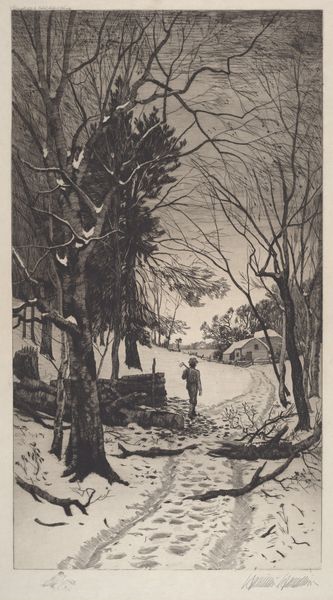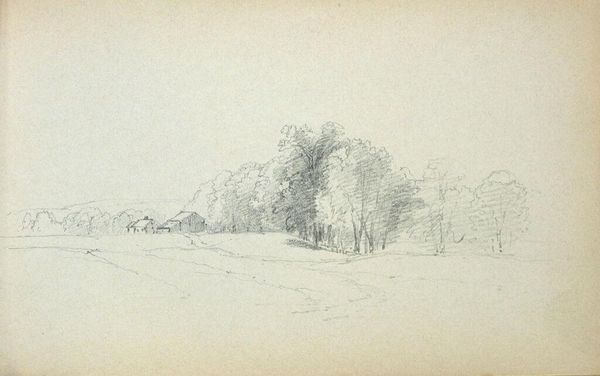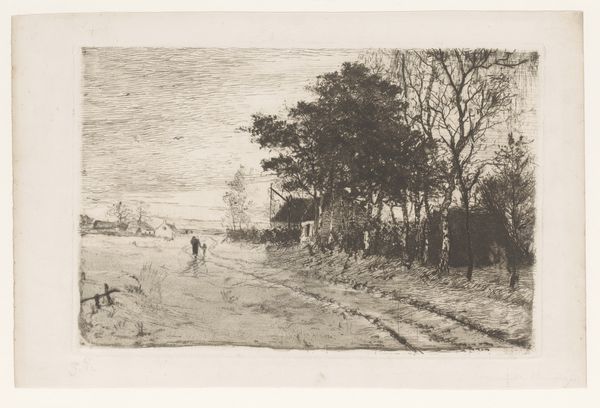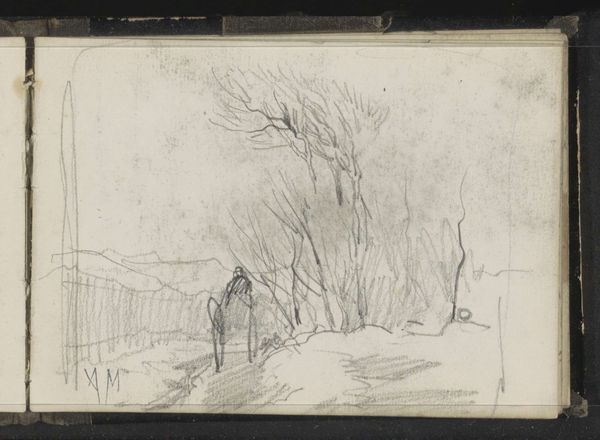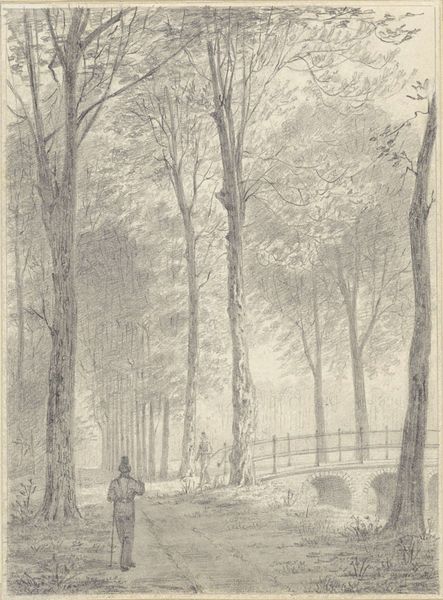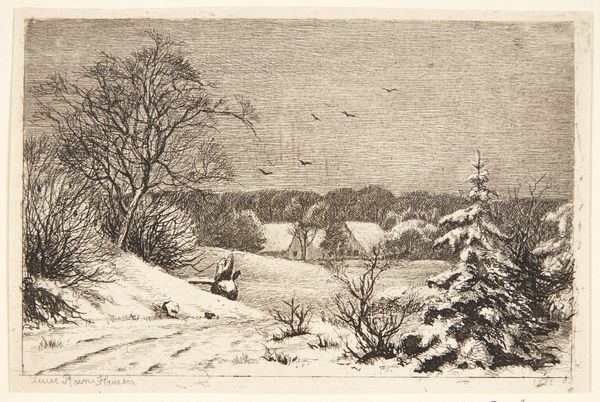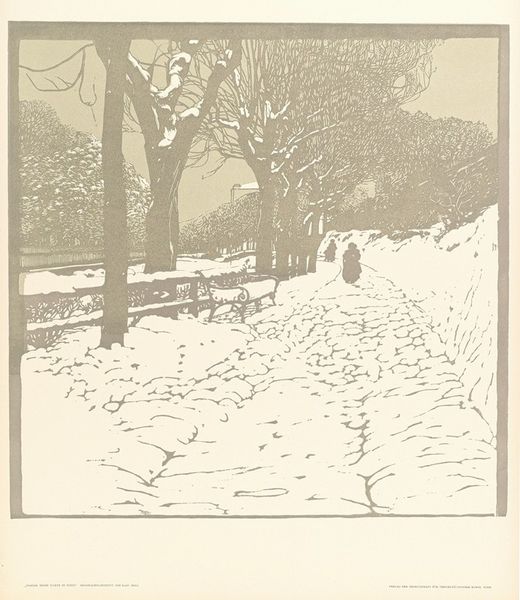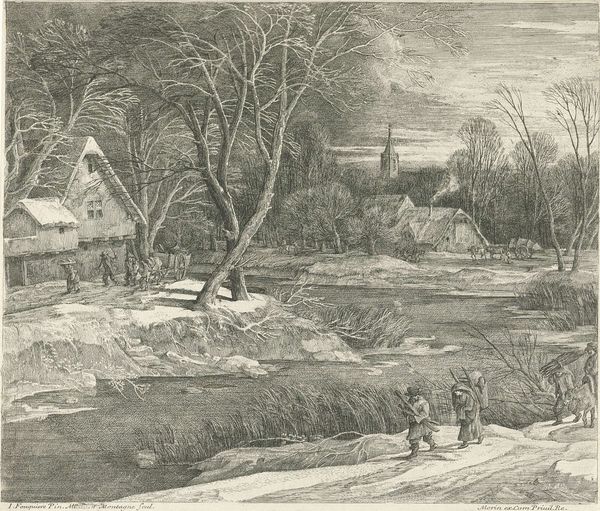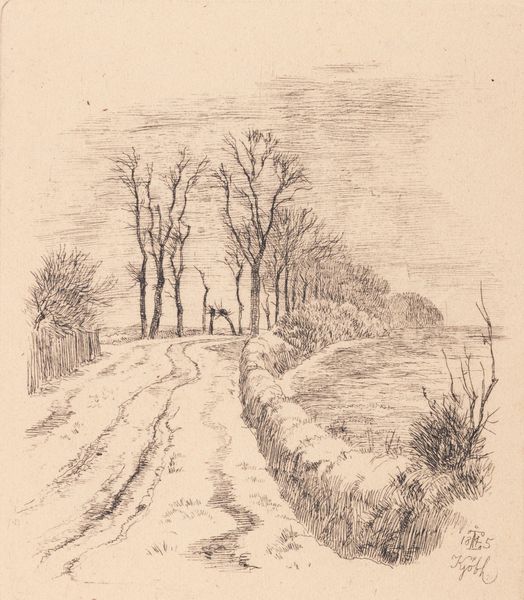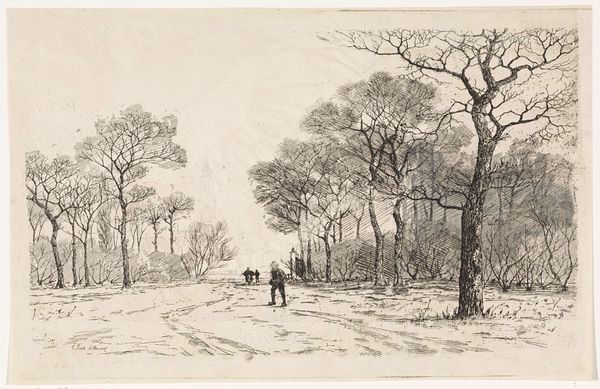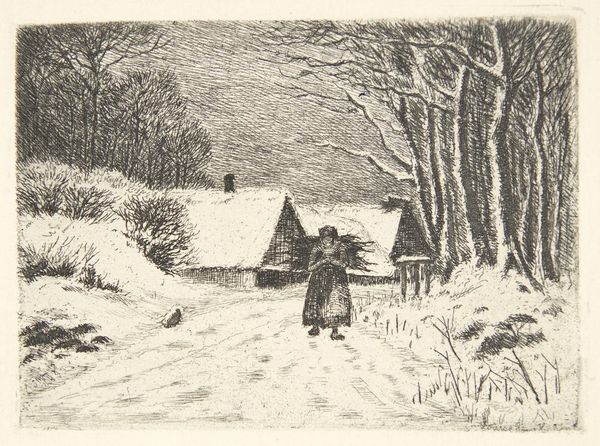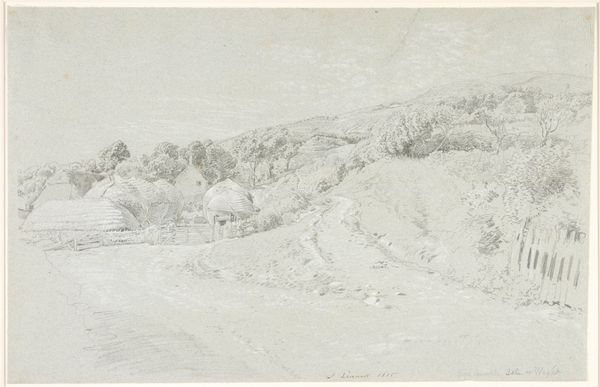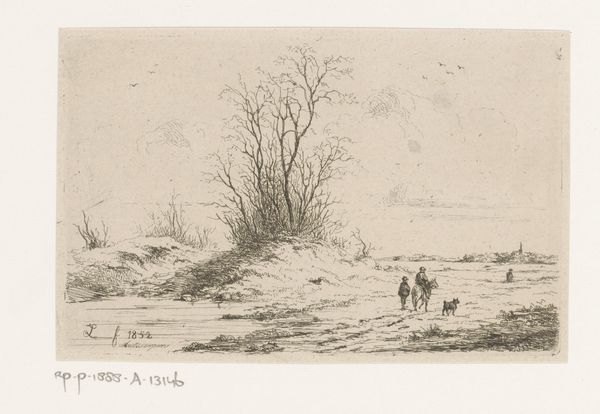
drawing, pencil
#
drawing
#
pencil sketch
#
landscape
#
figuration
#
romanticism
#
pencil
Dimensions: height 156 mm, width 212 mm
Copyright: Rijks Museum: Open Domain
Editor: This pencil drawing, "Sneeuwlandschap met staande man," or "Snowy Landscape with Standing Man," attributed to Jacob Ernst Marcus and created sometime between 1784 and 1826, evokes a real sense of solitude. The lone figure in the landscape is quite striking, but also kind of depressing. What strikes you about this piece? Curator: Well, considering the social and political climate of the late 18th and early 19th centuries, especially in Europe, I think the figure's solitude takes on a broader meaning. Romanticism as a movement was largely shaped by a shift in thinking that arose because of social revolution and upheaval. Do you see any hints of Romanticism here? Editor: I think so. There's that emphasis on nature and feeling...that sort of pining you get with Romanticism, right? I see how a figure alone in the landscape could emphasize a sense of individualism but also isolation after major social change. Curator: Exactly! Marcus presents a kind of vulnerability that speaks to the changing relationship between the individual and society at the time. Note how Marcus frames this character. What do you think he wants to say here? Editor: He wants to emphasize their quiet strength... but in such a vast and, well, snowy place. Maybe it reflects anxieties or uncertainties that were pretty widespread during times of revolution and change. I also see how Romanticism might use landscape to amplify people's sense of loneliness. Curator: Precisely! And that is, perhaps, why the museum has hung onto it for so long; Marcus's pencil drawing encapsulates that shift in social perspective, making it a document of both artistic and societal change. Editor: That’s given me a lot to consider, the sociopolitical perspective makes this piece so much more impactful. Thanks.
Comments
No comments
Be the first to comment and join the conversation on the ultimate creative platform.
